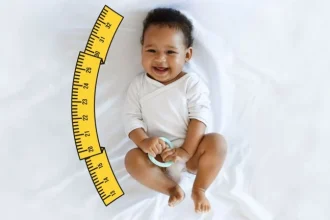Introduction
Music has always been more than just entertainment—it is a powerful force that shapes our identities, influences fashion, sparks social movements, and transforms language itself. From the rise of rock ‘n’ roll to the global dominance of hip-hop, the impact of music on pop culture is undeniable. This article explores the impact of music on pop culture, diving deep into its role in shaping trends, fostering social change, and defining entire generations.
The Birth of Musical Movements and Subcultures
One of the most profound impacts of music on pop culture is its ability to create and define subcultures. Throughout history, music has acted as a unifying force, bringing together like-minded individuals who share values, beliefs, and lifestyles. For example, the 1960s saw the emergence of the counterculture movement, fueled by the folk music of Bob Dylan and the psychedelic rock of bands like The Beatles and Jefferson Airplane. These artists provided the soundtrack to protests against war, civil rights struggles, and a quest for personal freedom.
Similarly, the punk rock explosion of the 1970s was more than just a musical style—it was a rebellion against societal norms, characterized by an anti-establishment attitude, DIY fashion, and a fierce independence that left a lasting mark on pop culture. The impact of music on pop culture is evident in the way these subcultures influenced fashion, language, and attitudes.
Fashion: From Stage to Street
Music and fashion have always shared a symbiotic relationship. The impact of music on pop culture can often be traced through the clothing choices of its biggest stars. Think of Elvis Presley’s slicked-back hair and flashy jumpsuits, which helped define the rebellious spirit of rock ‘n’ roll. In the 1980s, Madonna’s bold fashion choices—layered lace, fingerless gloves, and crucifix jewelry—set trends that defined an era.
Hip-hop’s influence on fashion is undeniable. From Run-D.M.C.’s Adidas tracksuits to today’s high-end streetwear brands endorsed by artists like Kanye West and Travis Scott, music artists have consistently blurred the lines between performance and personal style. These trends often start on the stage but quickly make their way into everyday wardrobes, highlighting the impact of music on pop culture.
Language and Slang: Shaping How We Speak
Music has a unique way of shaping language and slang. Phrases coined by musicians often find their way into everyday conversations, influencing how people communicate and express themselves. The rise of hip-hop and rap in the 1980s and 1990s introduced a wealth of new slang into mainstream culture—words like “bling,” “dope,” and “YOLO” owe their popularity to music.
Rock and roll also brought its own language, with terms like “cool” and “groovy” becoming synonymous with a rebellious and carefree attitude. The impact of music on pop culture is evident in how these words transcend generations, becoming part of our everyday lexicon.
Music Videos: Visual Storytelling and Cultural Influence
The advent of music videos transformed the way we experience music and contributed significantly to the impact of music on pop culture. MTV’s launch in 1981 revolutionized the industry, turning songs into visual stories and making artists global superstars. Michael Jackson’s “Thriller” is a prime example—it wasn’t just a music video; it was a cultural phenomenon that changed the way music was marketed and consumed.
Music videos continue to shape pop culture today. Beyoncé’s visual albums, like Lemonade, are celebrated not only for their music but for their storytelling, fashion, and social commentary. Artists now use videos as platforms to explore complex themes, challenge norms, and connect with audiences on a deeper level, proving the impact of music on pop culture through innovative visual narratives.
Social Change and Political Activism
Music has long been a catalyst for social change, using its universal language to inspire movements and challenge injustices. Songs like Bob Dylan’s “The Times They Are A-Changin’” became anthems for the civil rights movement, while Marvin Gaye’s “What’s Going On” addressed issues of war and inequality.
More recently, artists like Kendrick Lamar have continued this tradition with songs like “Alright,” which became a rallying cry for the Black Lives Matter movement. The impact of music on pop culture is deeply intertwined with its power to raise awareness and drive social change, reminding us that music is not just entertainment but a force for progress.
Technology and the Democratization of Music
Technology has amplified the impact of music on pop culture, changing not only how we listen to music but also how it shapes our lives. The rise of digital platforms like Spotify and Apple Music has made music more accessible than ever, allowing fans to explore genres and discover artists from around the world.
Social media platforms like TikTok have also revolutionized the industry, with songs going viral and influencing pop culture in ways previously unimaginable. A single 15-second clip can turn an unknown artist into a household name, proving that the impact of music on pop culture is stronger and more immediate than ever before.
The Globalization of Music and Cultural Exchange
Music has become a global language, transcending borders and connecting cultures. The worldwide popularity of K-pop is a testament to the power of music to bridge cultural gaps. Groups like BTS have not only topped charts worldwide but have also influenced fashion, language, and even diplomacy, bringing Korean culture to the global stage.
Latin music, too, has seen an explosion of popularity, with artists like Bad Bunny and J Balvin breaking records and collaborating with mainstream stars. The impact of music on pop culture is evident in the way these genres foster cultural exchange and shape our understanding of the world.
Generational Identity and Nostalgia
Music often defines generations, creating shared experiences that shape identity and nostalgia. Baby Boomers found their voice in the rock anthems of the 1960s and 1970s, while Generation X embraced grunge and alternative rock as a form of rebellion. Millennials and Gen Z have grown up in a digital age where genre boundaries blur, yet music still plays a pivotal role in defining their cultural moments.
From festival culture to Spotify playlists, the impact of music on pop culture continues to evolve, reflecting the tastes and values of each new generation. These shared musical experiences foster a sense of belonging and nostalgia, reminding us of where we’ve been and who we are.
Conclusion
The impact of music on pop culture is undeniable and far-reaching. From shaping fashion and language to inspiring social change and defining generations, music is a constant companion in our journey through life. Its power to connect people, challenge norms, and celebrate diversity makes it an essential part of the human experience.
As music continues to evolve alongside technology and cultural shifts, its influence on pop culture will only grow, ensuring that its legacy remains as vibrant and dynamic as ever.





